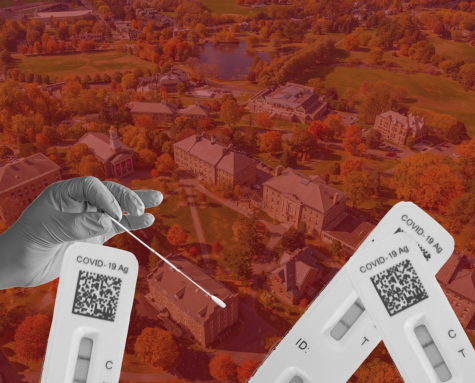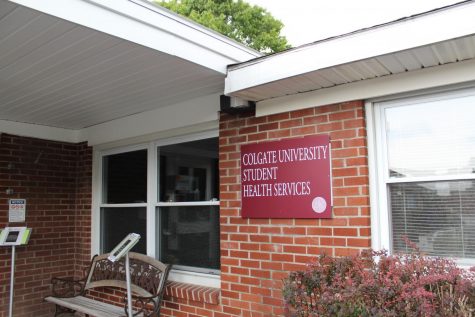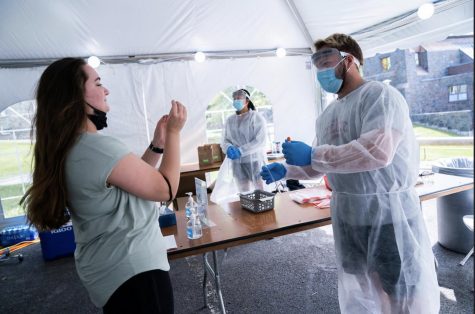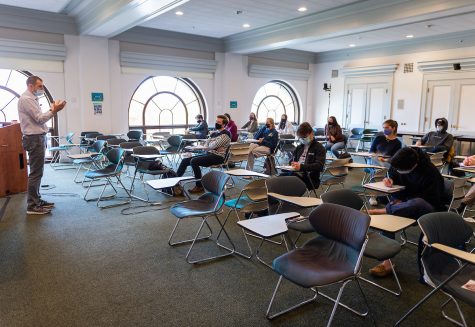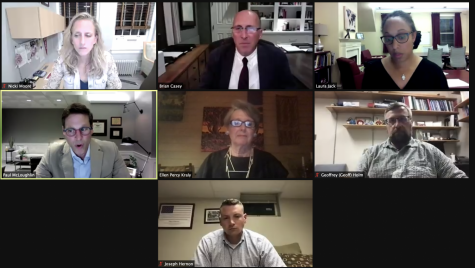Colgate Donates Portable WiFi Hotspots to Hamilton School District Families
Colgate University donated 15 portable wireless hotspot devices to the Hamilton Central School District (HCSD), giving students and teachers internet access for remote learning amid the COVID-19 pandemic. When news came March 13 that all N.Y. state schools must close by March 17 and transition to remote teaching and learning, the district had to act swiftly to create a plan. HCSD administrators sent all students a paper survey to gauge their internet access at home and worked with Colgate to provide them with equitable access to education.
HCSD Superintendent William (Bill) Dowsland said he reached out to Colgate Senior Vice President for Finance and Administration and Chief Investment Officer Joseph Hope, who connected him with Chief Information Officer Niranjan Davray. Together, Davray and Hope donated 15 portable hotspot units on behalf of the University to HCSD, covering the data fees for each MiFi unit to ensure internet access for students and teachers in Hamilton.
“We recognize that HCSD plays such a critical role in the education of so many children. They are an essential resource for our entire community. As educators ourselves, we must support one another in difficult times.” Davray said. “I hope our assistance helps, in some small part, to alleviate a few of the challenges they face as we all work to provide the best education possible for our constituents.”
Dowsland said the donation has made immense impacts on the district’s ability to provide students the resources required for remote instruction.
“It’s been a godsend–many families did not have [WiFi] connectivity,” Downsland said. “Every district is looking for wireless options, but they are quite expensive. We’re on a limited budget, and Colgate’s graciousness of supplying 15 MiFi hotspots for families in need is invaluable to students’ learning experiences.”
HCSD Middle School Special Education Teacher Sara Zogby, whose 7-year old son is a student at HCSD, received one of the donated Wifi units.
“Prior to the hotspot, I was unable to download materials, make videos, upload materials, create materials, or consistently respond to students’ questions and needs. I would have to go to the school parking lot to use their internet,” Zogby said. “I am [also] a single mother with a seven-year-old son who attends HCS and has special needs. He receives special education, speech therapy, and occupational therapy. He was unable to access any digital material sent to him as we were unable to watch videos or download his material.”
Zogby said the hotspot unit has made an immense impact and her and her son’s life.
“Since receiving the hotspot our lives have become so much easier when it comes to teaching and learning. I have been able to consistently make videos and generate online material from my home. My son has been able to access all of his material now. He also can participate in teletherapy sessions.” Zogby said. “It has been amazing for us both.”
Colgate alumnus Jim Wrobel ’79 works as a Network Technician at Mount Markham Central School District, another rural area about 26 miles from Hamilton in West Winfield, NY. Wrobel said 25 percent of the district’s student body is without internet access at home.
“Once it became clear that the delivery of electronic content could offer a greater variety and breadth of materials than a paper packet, we implemented a device loaner service and set up hotspots in the parking lots of two of our buildings allowing anyone with one of our school-issued devices to access the internet free of charge,” Wrobel said. “These loaner devices, primarily Chromebooks but also iPads and some laptops, are set up to automatically connect to the WiFi network without a password to remember.”
Dowsland said that while remote instruction access does not live up to the standards of in-person instruction and holistic support for students’ needs, he commended the district’s teachers for proving necessary instruction with understanding and sensitivity during a difficult time.
“This has been a difficult time for students and their families, and the teachers have been terrific in prioritizing the curriculum and covering essentials,” Dowsland said. “They have also been very cognizant of not overwhelming families, and recognizing a need to balance home life with meeting the needs of students.”



